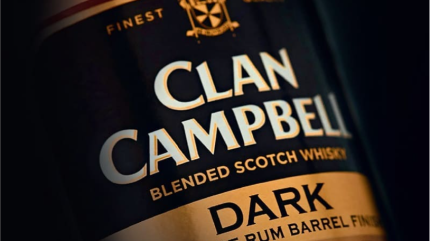
Reading the runes of the international spirits market is proving particularly troublesome at the moment. The story in spirits over the past couple of decades – despite the economic slump of 2008-9 – has centred on premiumisation and the prevailing theory that increasing numbers of people around the world are looking to drink less but to spend more when they do.
However, the long shadow of Covid-19 and the challenges posed by today’s inflationary environment – with steep costs for food and fuel, and interest rates rising – are putting that received wisdom to the test. If and when consumers look to trim their household budgets as a result of the current difficulties, booze is a discretionary purchase that is bound to be in the firing line.
This is especially the case if people have been spending progressively more on their bottle of Scotch, vodka or gin. At the top end, the super-rich will no doubt still splash out as before but will the less well-heeled return to their previous spending habits, trading down to less expensive brands, or to supermarket own-label products?
This is the backdrop to the recent flurry of M&A activity involving Stock Spirits, Borco-Marken-Import and Pernod Ricard. Stock has acquired Borco, the Hamburg-based spirits business owned by the Matthiesen family and best-known for its dinky-sombrero-capped Sierra Tequila brand. The Warsaw-based spirits group looks poised to add blended Scotch Clan Campbell as well, if talks with Pernod go well.
It isn’t hard to decipher the Stock strategy here. One of the avowed aims of private-equity business CVC Capital Partners on buying Stock in 2021 is proudly displayed on the company website, with the key point picked out in bold type: “We want to become the leading mainstream spirits company in Europe by 2027.”
Both Sierra and Clan Campbell tick that box but both also look, at first glance, like the past of their respective categories, rather than the future. Tequila in the US and, increasingly elsewhere too, is now all about celebrity gloss, 100% agave and premium-and-above pricing; Sierra, with its cutesy packaging and sub-€15 ($16.68) pricing, harks back to the old days of shots and slammers. It’s a bit like comparing an Alejandro González Iñárritu movie with a mariachi band.
Clan Campbell, a stalwart of the volume-led French market for Scotch – only overtaken last year as the category’s biggest destination by India – isn’t the cheapest player there by any means but it ain’t Johnnie Walker either, lacking the Diageo brand’s status, scope and price elasticity.
But both are still growing and, anyway, Stock’s interest in them is as much about geography as it is about product. If the company is to hit that 2027 target, it needs to break out of its central/eastern European comfort zone and sharpish. Campbell gives it an entrée to France; Borco to Germany.
Unlike Borco, however, Campbell is only a brand, not a route to market. Hence the talks to acquire Dugas, the French spirits distributor that has a name for building brands and scale there – largely at premium-plus price points, which suggests there’s more to Stock’s ambitions here than merely pushing the volume button.
Pernod unlikely to miss Clan Campbell
So much for Stock – except to say there should be more of these deals to come in the relatively near future, expanding the company’s participation in different categories, acquiring scale, and giving it a larger footprint across the continent.
But what of Pernod? There’s an element of coming full circle about the Clan Campbell disposal. When I entered the industry in the pre-Seagram sell-off autumn of 2000, Campbell Distillers was Pernod’s Scotch business, before the slice-up with Diageo gave it Chivas Regal and The Glenlivet, and the Allied Domecq deal a few years on brought Ballantine’s, among others. Next year would have marked the 50th anniversary of Campbell Distillers’ acquisition by Pernod.
The company has come a very long way since then, as the willingness to sell off one of its former crown jewels illustrates. But it’s long had a fairly ruthless attitude in terms of casting off unwanted Scotch assets, as we’ve noted before – from Glen Grant in 2005 (admittedly enforced), to BenRiach, GlenDronach, GlenAllachie (the signature malt for Clan Campbell, incidentally) and, most recently, Tormore. Meanwhile, it has moved to expand and consolidate its malt production at Aberlour and Miltonduff by mid-2025.
Nonetheless, analysts have expressed some surprise about the Clan Campbell deal, largely based on the global growth forecasts for Scotch. I’m not so sure I share their bewilderment – Pernod isn’t exactly short of Scotch brands that populate a range of price points, from Chivas, Ballantine’s, The Glenlivet and Aberlour to lower-profile regional players such as 100 Pipers, Passport, Something Special and Long John. I’m not sure Clan Campbell – largely reliant on France for its sales, plus a bit of Spain and Italy – will be much missed in that context.
The only caveat is that, at certain times and in certain markets, it doesn’t hurt to have price-fighting brands even in as value-focused a category as Scotch whisky. Witness Diageo’s very clever playing of Latin American markets when macroeconomic trends turned negative during the 2010s. Suddenly, Johnnie Walker and Buchanan’s had to take a bit of a back seat, with Black & White filling the void and luring consumers in with its lower prices. And once disposable incomes expanded again… back to Plan A.
Clan Campbell, however, doesn’t really participate in those markets, but in the mature, established destinations of western Europe. And that brings us back to where we began… These are increasingly fragile times for the global economy in general, including the countries where Campbell has a presence. In that context, Clan Campbell – lest we forget a 1m-plus-case brand, after all – could yet have a big part to play. Stock Spirits will certainly hope so.


